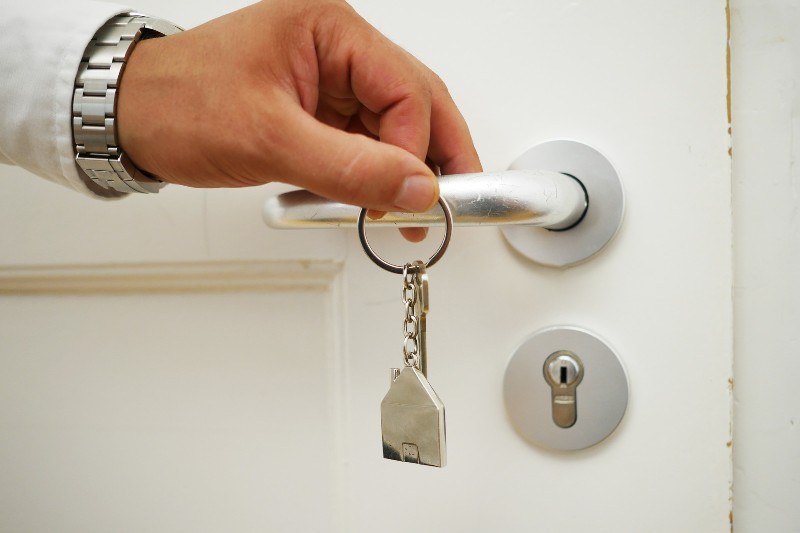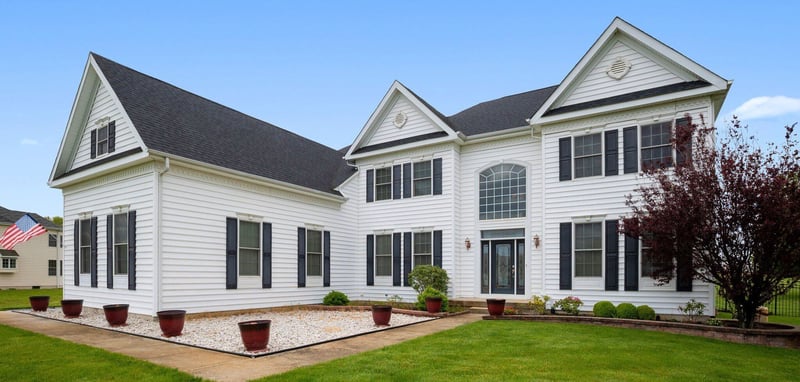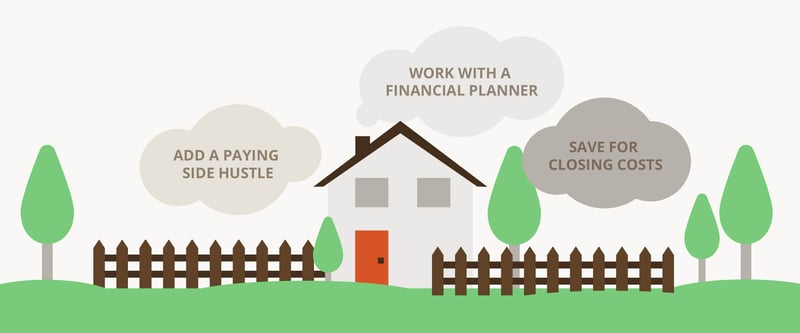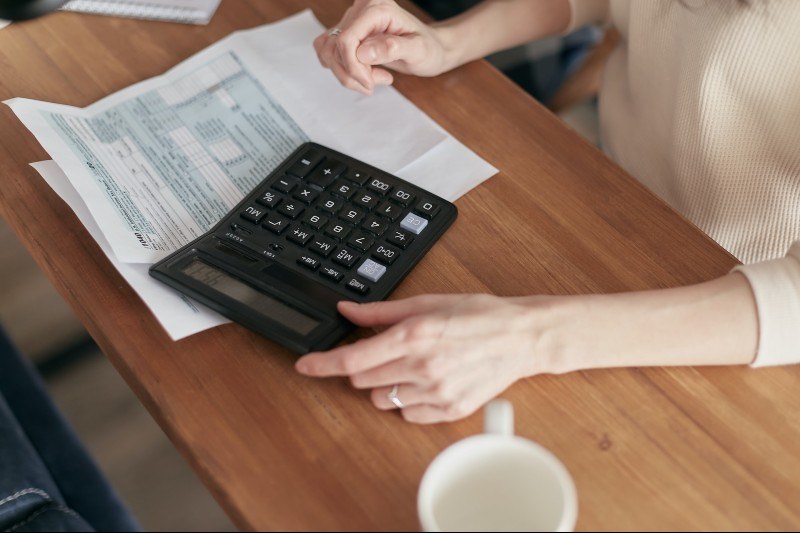
Am I Ready to Buy a New House? The Questions You Need to Answer
Posted on Mar 01, 2021
The housing market may have been nuts, but the rental market last year wasn't much better. Millions...

Posted on Mar 01, 2021
If you’ve never saved up for a home before, it can feel like a daunting and sometimes overwhelming process. Here’s what you need to know about how to save money for a house, whether you’re opting for a small townhome on a quiet city street or a sprawling single-family home in the suburbs.
You can’t save for a house until you know how much you’re going to spend on one. The conventional advice is that people should spend no more than around one-third of their post-tax income on housing.
That means: if your monthly take-home pay is a combined $6,000, then your maximum housing cost is, ideally, $2,000 per month. Keep in mind that this needs to include not only your mortgage, but also property taxes, utilities, and general upkeep.
Although this number is not a hard rule, it’s a pretty good rule of thumb. You want to know that you have enough money for your other expenses, and also that if something temporarily strains your financial resources (a loss of income, illness, etc) you have a bit of cushion.
Kristy Runzer, CFO and Founder & CEO of Philadelphia-based OnRoute Financial, routinely counsels her clients on how to save effectively. “I recommend not necessarily buying a house at the maximum amount you're approved for,” says Runzer. “Consider what the monthly payment will be, including taxes and insurance, before buying a house at the top of your budget. You may find that even if you're approved for a certain amount, making that payment each month will make the rest of your finances feel really tight.”
Once you know your budget, you’ll also know your down payment, which is one of the most important things you need to save for.
If you’re interested in saving for a house but don’t see yourself as being particularly financially savvy, you may benefit from working with a financial planner as part of the process.
“A financial planner can help you understand and think about all the different moving pieces that are involved with buying a house,” explains Runzer. “You may get a lot of information and feel overwhelmed as you go through this process. Having a financial planner who has your back will help you to make the best financial decisions for you, your goals, and your financial situation.”

You may be wondering, “but how do I save for a house?” Until there’s a money tree, the tried-and-true methods of saving your money are often the most effective ones.
Instead of spending your money and keeping what’s left over for your home, start by earmarking a percentage of your earnings for your future home costs - and keep them in a separate savings account. Consider automating your savings so that your home funds are diverted from your paycheck as soon as it’s deposited.
We’ve gotten used to tracking everything from our daily steps, to our sleep - so why not keep track of your money?
“A great place to start with reducing your expenses is actually knowing what they are,” says Runzer. “There are a lot of budgeting apps out there that you can use to track your spending each month. This is helpful because it brings awareness to where your money is going right now. From there, you can make decisions about what spending to keep and what to cut back on, based on your priorities and where you want your money to be going.”
Sometimes, even small changes - like making coffee at home instead of going to coffee shops dining out less frequently, or cutting out alcohol for a month - can have a big impact on your finances over time.
Side hustles like bartending, driving for rideshare or meal delivery companies, dogwalking, or flipping vintage clothes online can bring an extra influx of cash that helps bring you closer to your goal.
When you’re saving for a home, it’s okay to make temporary cuts to your budget that help you save money, even if those cuts aren’t sustainable in the long term.

U.S. home closing costs average $4,876, according to real estate data firm ClosingCorp. Generally, closing costs are from 2% to 5% of the home’s value.
But what are closing costs? This includes:
Closing costs are separate from, and in addition to, the down payment. When you save money to buy a home, you’ll need to save money to cover all the closing costs that allow you to own the home. You can usually get a decent estimate of your closing costs by talking to your agent - the price can vary depending on the size of your home, and where you live (home appraisals cost more in Baltimore, MD than in Philadelphia, PA, for example).
Read more about closing costs in PA.
Most people have heard that it’s a good idea to pay at least 20% of your home’s value as the down payment. This helps keep your interest rate low, and helps you avoid having to pay an additional fee for private mortgage insurance (PMI). Many major lenders also require 20% down.
What happens if you don’t have enough money to do 20%? Luckily, there are numerous home loan programs, especially for first time homeowners, that can help you obtain loans with as little as 5% down.
“It's always nice to put down 20%, because the more you put down, the less you pay each month, and the less you pay in interest over the life of the loan,” explains Runzer. “However, sometimes 20% is a lot to save, and you may be ready to purchase a home and stop spending money on rent sooner rather than later. It's perfectly okay to put down less than 20% too.
It really depends on your situation. Do you have the cash on hand? How much of a monthly payment can you afford? What's your timeline and how quickly are you looking to purchase a home? How does the purchase of a home affect any other financial goals you're working on? It's important to consider all the different moving pieces of your finances, what's important to you, and make a decision that works for you.”
Read more about the benefits of not waiting until you have 20%.
Another thing to consider: rising prices and potentially higher interest rates may erase some of your savings, so it doesn’t always make sense to wait.
For example, Philadelphia home prices have gone up 5.4% over the past year, as of Sept. 2020. Let’s say a couple began saving in Sept. 2019 for a $400,000 down payment - that’s $80,000 at a conventional 20% payment. However, because of rising prices, that same home is now worth $421,600. And if they wait another year and home prices rise steadily, the house will be worth $444,400. By waiting too long, they may risk getting priced out of their dream house.
According to a recent Bankrate survey, millennials (who now make the majority of first-time home buyers) need three years on average to save for the down payment for their home.
On top of this, mortgage rates are at historic lows right now. By waiting one year - or several - you're likely to encounter higher mortgage rates, which can translate into paying thousands of dollars more in interest over the lifetime of your loan.
"Now is the time to take advantage of the lowest interest rates we have seen. Home ownership is more affordable than ever before," recommends Houwzer mortgage advisor Ray Garville.
Once you have the keys to your new home, there may be additional costs you need to think about.
“Don't forget to think about any expenses that may come up as you move and settle into the new house,” advises Runzer. “Are you paying for movers? Are you doing any work to the house? Do you need to buy any furniture?”
Buying a new couch is something you can leave off for 6 months, but paying for movers to take your old couch to your new house will be an immediate cost.
You also may need to prepare for higher utility bills if you’re moving from an apartment to a house. Make a list of potential post-home buying costs that you need to save for, and budget accordingly.
It may seem counterintuitive to pay down your debts while you’re trying to save for a home, but this is an important step in making home ownership a reality.
Lenders will limit your debt to income ratio, so the more debt you pay off, the less limited you’ll be when it comes to budgeting for your home.
Paying down your debt will also help your credit score, which in turn enables you to access lower interest rates. Lower interest rates can save you thousands of dollars over the lifetime of your loan.
“The amount of debt payments you have relative to your income affects how much of a mortgage you'll be approved for,” notes Runzer. “If you can't yet afford what you want, paying off some debts will expand your budget and lighten the load each month.”
How can you improve your credit score?
Ultimately, the best way to start saving for a house is to start planning now, rather than later. The sooner you figure out how much you need to save and begin budgeting, the closer you are to receiving the keys to your new home.
“Buying a house can feel very overwhelming and a little scary. For many of us, it's the biggest purchase we'll ever make,” notes Runzer. “So it is important to be smart and mindful. However, it's also something that is within your reach and that you can do! It's not as scary as it may seem, and you don't have to do it alone.”
Subscribe to our newsletter to get essential real estate insights.

Posted on Mar 01, 2021
The housing market may have been nuts, but the rental market last year wasn't much better. Millions...

Posted on Mar 01, 2021
It’s easy to get caught up in the home buying/home selling process and forget closing costs, but...

Posted on Mar 01, 2021
For many homeowners, a mortgage is the most significant financial transaction of their lives. Not...